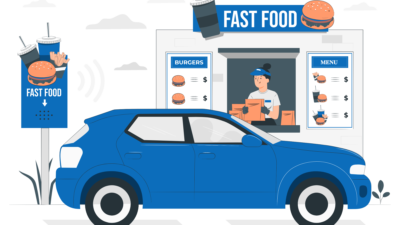Did you hear that right—is California really going to be raising its fast food minimum wage to $22 an hour?
The California state legislature raised many employer eyebrows on Labor Day when Governor Gavin Newsom signed AB-257, or the Fast Food Accountability and Standards (FAST) Recovery Act. The bill appoints a 10-member council comprising employees, employers, and union representatives to work on setting minimum wages and working conditions of California fast food workers.
What is the FAST Recovery Act?
Immediately—and probably understandably—employers’ eyes went to the dollar sign. Here are the main points of the bill in simplified terms. It should be noted that the only thing the bill signed into law was the formation of the council, which will remain intact until 2029. None of the following has taken place yet:
- The newly constituted council will have the power to raise the minimum wage to $22 an hour next year (an increase of 47 percent).
- In 2024, the council would be authorized to again increase fast food workers’ minimum wage by up to 3.5 percent, or the adjusted Consumer Price Index for Urban Wage earners.
- Lastly, the bill sets up a framework for the council to update various worker protections ranging from working conditions to termination and reinstatement guidelines.
Who Does the FAST Recovery Act Apply To?
The act establishes some parameters for what, exactly, a fast food restaurant is. Namely, it’s referencing chains—restaurants with more than 100 locations nationwide. Secondly, there is some language speaking to the nature of how food is served, specifically that it is ready-made food served after payment is made. And, perhaps quite importantly, some legal readings indicate that any new rulings set forth by the council, even if they are signed into law, will not apply to unionized workplaces.
What Should I Do About the FAST Recovery Act?
In our experience, commissions and councils are often formed with action never quite being as drastic as everyone hopes (or fears). In this case, the $22-per-hour wage that has been floated is a cap, not a baseline, and the very earliest it would take place would be 2023.
There also are likely to be local guidelines if the minimum wage does change significantly—this is already the case in urban areas, like in the Bay Area. We won’t know more about what any of this will look like until the commission is populated by the legislature’s appointees and they start making changes. Right now, the basic takeaway is that the idea of increasing the minimum wage significantly is under exploration—but it’s not yet under way.
We are not lawyers at Allevity, so if you need legal guidance, please seek it from your counsel! But if you have questions about how you might want to approach your workplace going forward, we’re always ready to talk. Give us a call!



